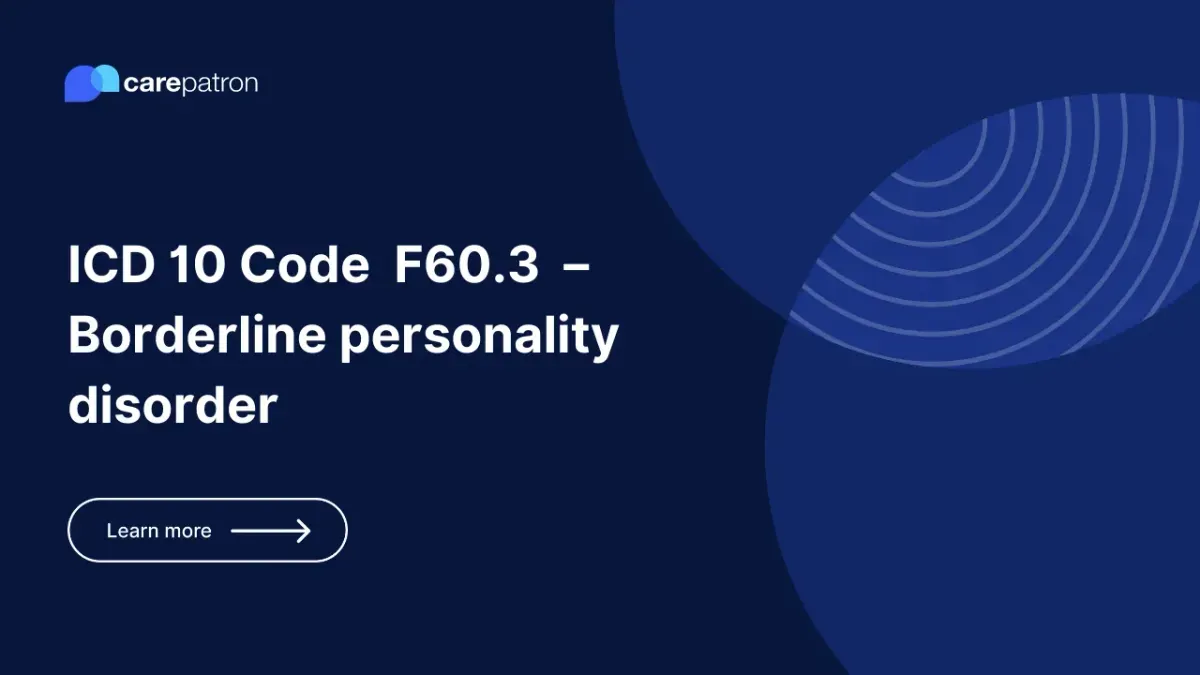
F60.3 – Borderline personality disorder
Learn more about the ICD-10-CM code F60.3, borderline personality disorder, its clinical implications, and its relevance in healthcare billing and treatment.
Use Code
Commonly asked questions
Symptoms include emotional instability, impulsivity, unstable relationships, fear of abandonment, and recurrent suicidal behavior.
Diagnosis typically involves a detailed patient history and comprehensive psychiatric evaluation by a healthcare provider.
Treatment often includes psychotherapy (like dialectical behavior therapy), medications, or hospitalization for severe symptoms.
EHR and practice management software
Get started for free
*No credit card required
Free
$0/usd
Unlimited clients
Telehealth
1GB of storage
Client portal text
Automated billing and online payments
